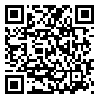Volume 12, Issue 3 (Summer 2024)
PCP 2024, 12(3): 201-216 |
Back to browse issues page
Download citation:
BibTeX | RIS | EndNote | Medlars | ProCite | Reference Manager | RefWorks
Send citation to:



BibTeX | RIS | EndNote | Medlars | ProCite | Reference Manager | RefWorks
Send citation to:
Malekitabr A, Khodabakhshi-Koolaee A, Falsafinejad M R, Vakili S. The Effectiveness of Psychological Interventions in Improving Psychological Well-being of Persons With Visual Impairment: A Meta-analysis Study. PCP 2024; 12 (3) :201-216
URL: http://jpcp.uswr.ac.ir/article-1-933-en.html
URL: http://jpcp.uswr.ac.ir/article-1-933-en.html
Alireza Malekitabr1 

 , Anahita Khodabakhshi-Koolaee *2
, Anahita Khodabakhshi-Koolaee *2 

 , Mohammad Reza Falsafinejad3
, Mohammad Reza Falsafinejad3 

 , Samira Vakili1
, Samira Vakili1 




 , Anahita Khodabakhshi-Koolaee *2
, Anahita Khodabakhshi-Koolaee *2 

 , Mohammad Reza Falsafinejad3
, Mohammad Reza Falsafinejad3 

 , Samira Vakili1
, Samira Vakili1 


1- Department of Counseling, Faculty of Humanities and Social Sciences, Science and Research Branch, Islamic Azad University, Tehran, Iran.
2- Department of Psychology and Educational Sciences, Faculty of Humanities, Khatam University, Tehran, Iran. ,a.khodabakhshid@khatam.ac.ir
3- Department of Assessment and Measurement, Faculty of Psychology and Educational Sciences, Allameh Tabataba’i University, Tehran, Iran.
2- Department of Psychology and Educational Sciences, Faculty of Humanities, Khatam University, Tehran, Iran. ,
3- Department of Assessment and Measurement, Faculty of Psychology and Educational Sciences, Allameh Tabataba’i University, Tehran, Iran.
Abstract: (3300 Views)
Objective: It is essential to determine detailed studies to understand the effectiveness, mechanisms, moderators, and cost-effectiveness of psychological intervention programs on psychological well-being in visually impaired people.
Methods: This systematic review focused on studies that evaluated the interventions to promote psychological, emotional, and social well-being. The data were collected by searching Google Scholar, Elsevier, Science Direct, PubMed, and Scopus databases using the keywords, “psychological well-being in visually impaired people”, “effectiveness of psychological interventions in people with visually impaired (VI)”, “depression in blind people”, “stress in visually impaired people”, “effectiveness of cognitive behavioral therapy (CBT)”, “behavioral approach”, “rational emotive behavior therapy”, “schema therapy”, “cognitive therapy”, “mindfulness”, “orientation”, “acceptance and commitment therapy (ACT)”, “music therapy”, “rational emotive behavior therapy (REBT)”, “narrative therapy”, “compassion therapy”, “adventure”, “play therapy”, “meaning therapy”, and “group counseling” on visually impaired people. Each keyword was searched separately. The search was conducted on the documents that were published from 2003 to 2023. In the final step, 25 records were analyzed in the study.
Results: Most studies focused on adolescents and young adults. A total of 44 components were assessed; the psychological components included distress, stress, anxiety, self-concept, assessment of decisive behavior, and psychological well-being in seven studies; the emotional components included depression and aggressive behavior in 6 studies, and the social components included communication skills and empathic orientations, social participation and social anxiety, social anxiety, quality of life (QoL), creative skills, interpersonal openness, and self-esteem in 12 studies. The highest number of interventions conducted focused on CBT in 6 studies followed by REBT interventions conducted in 3 cases.
Conclusion: Visually impaired people need effective and early interventions in life due to their limited vision. Since thinking, feeling, and action are intertwined in arousing a person, it seems that cognitive therapies can improve visually impaired people’s psychological well-being. The results also indicated CBT and REBT are more effective than other interventions.
Methods: This systematic review focused on studies that evaluated the interventions to promote psychological, emotional, and social well-being. The data were collected by searching Google Scholar, Elsevier, Science Direct, PubMed, and Scopus databases using the keywords, “psychological well-being in visually impaired people”, “effectiveness of psychological interventions in people with visually impaired (VI)”, “depression in blind people”, “stress in visually impaired people”, “effectiveness of cognitive behavioral therapy (CBT)”, “behavioral approach”, “rational emotive behavior therapy”, “schema therapy”, “cognitive therapy”, “mindfulness”, “orientation”, “acceptance and commitment therapy (ACT)”, “music therapy”, “rational emotive behavior therapy (REBT)”, “narrative therapy”, “compassion therapy”, “adventure”, “play therapy”, “meaning therapy”, and “group counseling” on visually impaired people. Each keyword was searched separately. The search was conducted on the documents that were published from 2003 to 2023. In the final step, 25 records were analyzed in the study.
Results: Most studies focused on adolescents and young adults. A total of 44 components were assessed; the psychological components included distress, stress, anxiety, self-concept, assessment of decisive behavior, and psychological well-being in seven studies; the emotional components included depression and aggressive behavior in 6 studies, and the social components included communication skills and empathic orientations, social participation and social anxiety, social anxiety, quality of life (QoL), creative skills, interpersonal openness, and self-esteem in 12 studies. The highest number of interventions conducted focused on CBT in 6 studies followed by REBT interventions conducted in 3 cases.
Conclusion: Visually impaired people need effective and early interventions in life due to their limited vision. Since thinking, feeling, and action are intertwined in arousing a person, it seems that cognitive therapies can improve visually impaired people’s psychological well-being. The results also indicated CBT and REBT are more effective than other interventions.
Keywords: Psychological well-being, Visual impairment (VI), cognitive behavioral therapy (CBT), Meta-analysis
Type of Study: Review paper |
Subject:
Rehabilitation
Received: 2024/04/7 | Accepted: 2024/05/19 | Published: 2024/07/1
Received: 2024/04/7 | Accepted: 2024/05/19 | Published: 2024/07/1
| Rights and permissions | |
 |
This work is licensed under a Creative Commons Attribution-NonCommercial 4.0 International License. |





